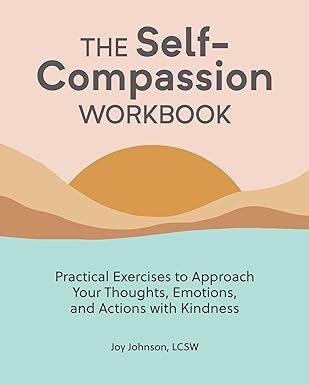
Self-Worth Therapy in Wauwatosa & Online
Do you often feel negative about yourself, incapable, or “not good enough”?
Self-worth is the term used to describe how you value yourself. You may also hear it referred to as self-esteem or even confidence. If you feel you are “not good enough” or “unlovable,” you may be experiencing low self-worth.
Some other signs of low self-worth include:
Not believing in yourself and your abilities (hello, impostor syndrome)
Feeling like you just don’t fit in
Difficulty making and sticking to your own decisions
Feeling the need for approval or validation from others
Difficulty expressing and prioritizing your own needs, wants, and emotions
People pleasing to avoid upsetting others and just going along with what others are saying or doing
Feeling the need to prove your worth through achievements, appearance, or other external factors
Saying “I’m sorry” for things that you have no responsibility for
Frequently comparing yourself to others
Excessively doing things or buying things for people to feel wanted, needed, or worthy
Negative self-talk and negative view of yourself
Improving your self-worth can change your life. Reaching out for support and engaging in therapy can be a great way to achieve this.
Low Self-Worth Can Affect Your Relationships with Others.
When you feel you are not worthy of more or better, this can lead to unhealthy relationships with others. It can lead you to being treated poorly and “putting up with” less than you deserve.
Low self-worth can make it difficult to set and hold boundaries with others. This can cause many difficulties in relationships and leave you feeling resentful of others.
You may feel that buying things or doing things for people is the only way they will like you or want you around. You may also feel that because you have a negative view of yourself then other people must also view you in that negative light.
Exploring Self-Compassion Can Help Improve Your Self-Worth.
Self-compassion is one way of addressing your self-worth. According to Kristen Neff, who has devoted her life to self-compassion research, self-esteem is a “fair weather friend” - one that is here for us when we are doing well and leaves us when we really need it.
She explains that self-esteem is strongly based on comparisons and is the degree to which we evaluate ourselves positively.
On the other hand, self-compassion is not an evaluation or judgment. It is a way of relating to ourselves and recognizing that we are human and that we are worthy and good just for being alive.
I integrate self-compassion into my personal life and my work with others. It has been life changing for me and I love to share it with others, so they can experience the same.
You can read more on self-compassion in this blog post, and find more information on self-compassion in the resources below.
Therapy Can Help You Gain Confidence, Reduce Insecurities, & Improve Your Relationships with Others.
Together in therapy, we will explore your experience with self-worth to help identify how you can best manage it and work to improve it to relieve the difficulties it has been causing in your life.
We will explore various strategies to help improve your self-worth and how you view yourself, including self-compassion, learning to prioritize yourself, and implementing proper self-care and stress management techniques. You will learn how to form a healthy relationship with yourself, which will ultimately help improve your relationships with others.
We will explore possible underlying problems or triggers and identify ways to improve unhealthy thought and behavior patterns that contribute to the low self-worth you have been experiencing. Through this process, you will gain confidence, own your worth, and reclaim the power over your life.
Other
Websites
The resources are intended to complement, not replace, working with a mental health professional. Heads up: Product posts on this page may contain affiliate links! You will not pay a penny more, but I’ll receive a small compensation. Thank you!

















